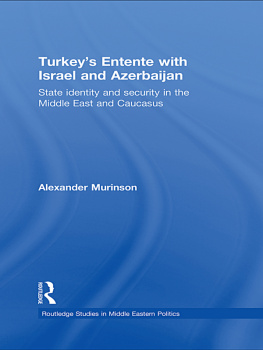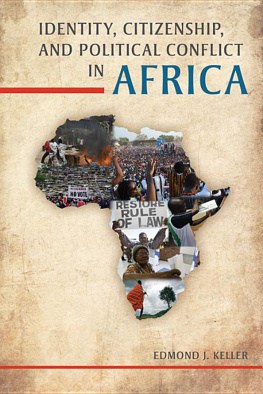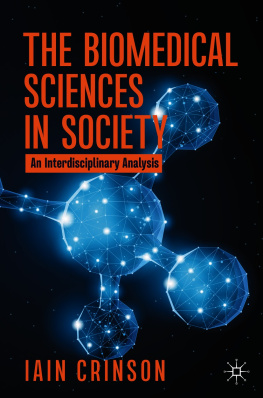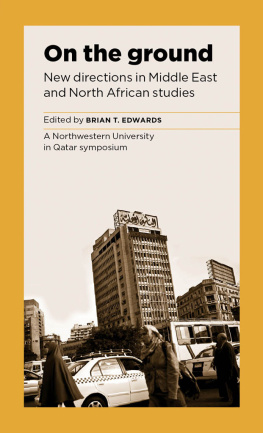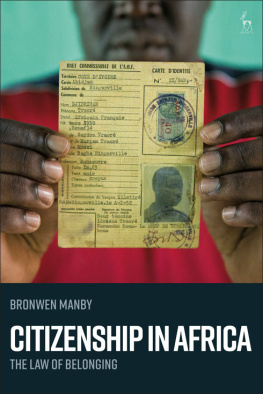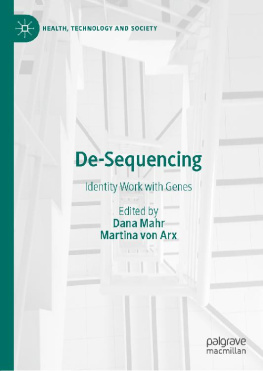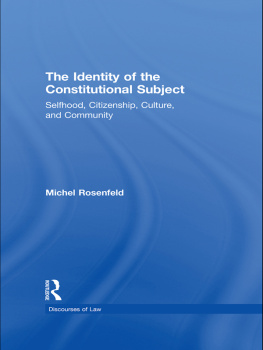Contents
Guide
Pagebreaks of the print version
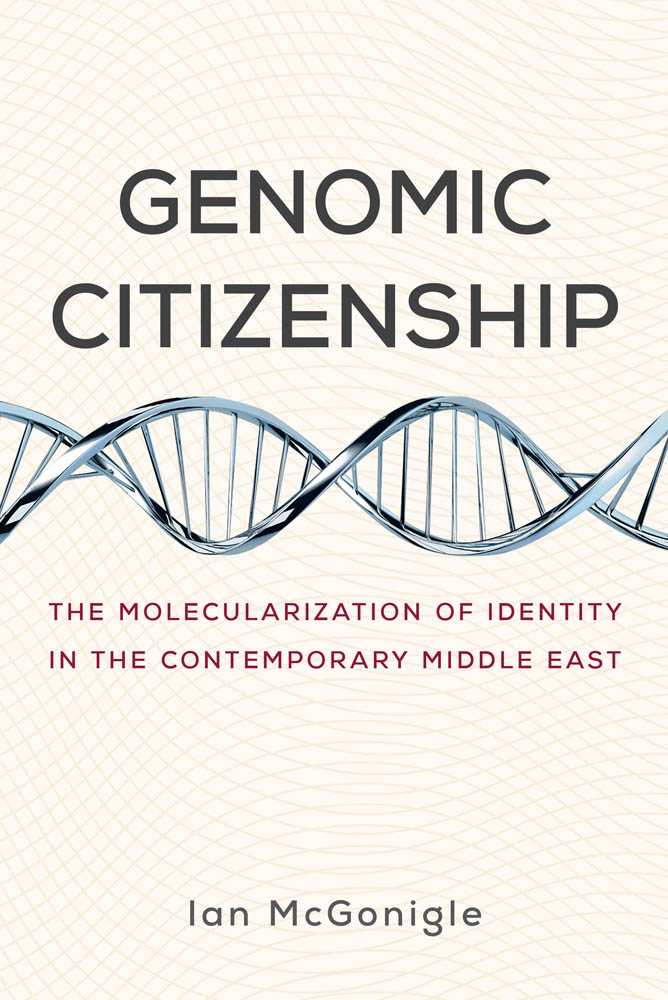
GENOMIC CITIZENSHIP
The Molecularization of Identity in the Contemporary Middle East
IAN MCGONIGLE
The MIT Press
Cambridge, Massachusetts
London, England
2021 Massachusetts Institute of Technology
This work is subject to a Creative Commons CC-BY-NC-ND license.
Subject to such license, all rights are reserved.

The open access edition of this book was made possible by generous funding from Arcadiaa charitable fund of Lisbet Rausing and Peter Baldwin.

The MIT Press would like to thank the anonymous peer reviewers who provided comments on drafts of this book. The generous work of academic experts is essential for establishing the authority and quality of our publications. We acknowledge with gratitude the contributions of these otherwise uncredited readers.
Library of Congress Cataloging-in-Publication Data
Names: McGonigle, Ian, author.
Title: Genomic citizenship : the molecularization of identity in the contemporary Middle East / Ian McGonigle.
Description: Cambridge, Massachusetts : The MIT Press, 2021. | Includes bibliographical references and index.
Identifiers: LCCN 2020047210 | ISBN 9780262542944 (paperback)
Subjects: LCSH: Human genetics--Political aspects--Israel. | Human genetics-- Political aspects--Qatar. | Biobanks--Political aspects--Israel. | Biobanks-- Political aspects--Qatar. | Ethnology--Israel. | Ethnology--Qatar. | Ethnicity-- Israel. | Ethnicity--Qatar. | Nationalism--Israel. | Nationalism--Qatar. | Citizenship--Israel. | Citizenship--Qatar.
Classification: LCC QH428.2.I75 M38 2021 | DDC 599.93/5--dc23
LC record available at https://lccn.loc.gov/2020047210
d_r0
CONTENTS
AUTHORS NOTE
The text of this book was written solely by the author, except where otherwise stated. Chapter 2 contains elements of a paper written in collaboration with Lauren Herman, a shorter version of which was published in the Journal of Law and the Biosciences (McGonigle and Herman 2015). Chapter 2 also includes parts previously published in Transversal: Journal for Jewish Studies (McGonigle 2015). A comparative article drawing on material from chapters 3 and 4 was published by Science, Technology and Society (McGonigle 2020b), and some of the material in chapter 4 is included in a chapter in an edited volume on identity and authenticity published by Routledge (McGonigle 2020a). Any previously published material is reproduced here with permission from the publisher. Likewise, permission has been granted for the use of any copyrighted images or figures.
LIST OF TABLES AND FIGURES
Catalog of DNA samples and cells of the NLGIP
Qatar Biobank participant data
Summary comparison of Israeli and Qatari biobanks
Israel population pyramid
Cost of sequencing a single persons genome
Sidra Functional Genomics Symposium
Qatar population pyramid
Family ties: Saudi Arabia strives to prevent genetic diseases
The genetic structure of the Qatari people
Map of the tribes of the Arabian Peninsula
PREFACE
In 2019, thenLebanese foreign minister Gebran Bassil tweeted about the genetic uniqueness of the Lebanese: We have devoted a concept to our Lebanese identity, above any other affiliation, and we have said that it was genetic, since it was the only explanation for our similarity and distinction (Nassar 2019). When challenged by British journalist Stephen Sackur on BBC HARDtalk (2019) for suggesting Lebanese genetic superiority to the Syrians, Bassil dismissed the accusation of racism but doubled down on the concept of Lebanity, which, he said, offers a sense of belonging for the Lebanese, adding, We have our own belonging, not being affiliated to any other foreign country.
Genetics has crept into how we think about national uniqueness and ethnic exceptionalism. How has this happened? Genomic Citizenship seeks to explain how biologyand specifically geneticshas become part of ethnonationalisms conceptual walls of national inclusion and exclusion. More precisely, Genomic Citizenship seeks to explain how and why genetics is growing as a genre for imagining ethnonational belonging in the Middle East.
Genomics research enabled by the collection of biological samples from ethnic populations is an important part of global medical research aimed at improving health and eliminating genetic disease, but the resultant technologies also provide a way of imagining and performing national citizenship. The consequences for how ethnic and national identities are understood are significant, with each national context having unique aspects. Comparing the genetics and biobanking of ethnic populations in Israel and Qatar underpins the core thesis of this book: that the molecular realm is an emergent site for articulations of ethnonational identity in the contemporary Middle East.
Increasingly, the nation itself is imagined as a biological object. When people imagine their relationship with their fellow citizens, they draw now on the language of genetics. Its in our DNA has become a catchphrase used in a way that can be half-serious or metaphorical, but it is also indicative of widespread acceptance of genetics as a basis of identity. By comparing how inclusion in the nation is imagined and performed in the Middle Eastern ethnonations of Israel and Qatar, this book attempts to clarify the theoretical problematic of the relationship between the science of ethnic populations and the valuating national context of its emergence. The implicit political normativity of this line of thinking is a commitment to keeping possibilities open and to unsettling reified ethnonational identities and taken-for-granted identitarian imaginaries. The intellectual value of this critical approach lies in the power of possibility that a responsible criticism of the relationships between science and society renders. In this sense, this reading of science and society entails an implicit proposition of the otherwise, wedging open a gap of possibility between science, as the self-imagined reportage of what is, and politics, understood as the battleground of what could be. An effective critique of science ought to shift the balance toward the latter.
Since this is a book about the relationship between science and identity, as well as a book that draws in part on the authors personal interactions with scientists, you are likely to wonder about my own identity and my relationship to science. I became interested in philosophical and anthropological questions about science while I was working toward a PhD at one of the worlds most prestigious biochemistry departments, at the University of Cambridge. I was engaged full time in laboratory research on the structure and function of brain neurotransmitter receptors. By day I was on a trajectory to become a career research scientist, while in my free time I read authors like Michel Foucault, Pierre Bourdieu, Herbert Marcuse, Mary Douglas, Claude Lvi-Strauss, Philippe Descola, classic British structuralist and functionalist ethnographies, and accounts of Amazonian shamanism. I became preoccupied by questions of epistemology, ontology, and how scientific objectsand comparatively, diffuse indigenous objects, like plant spiritscan appear and disappear, in different historical periods, or indeed simultaneously, synchronically, cross-culturally. In short, I came to the question of what the cultural basis is of a scientific object.


